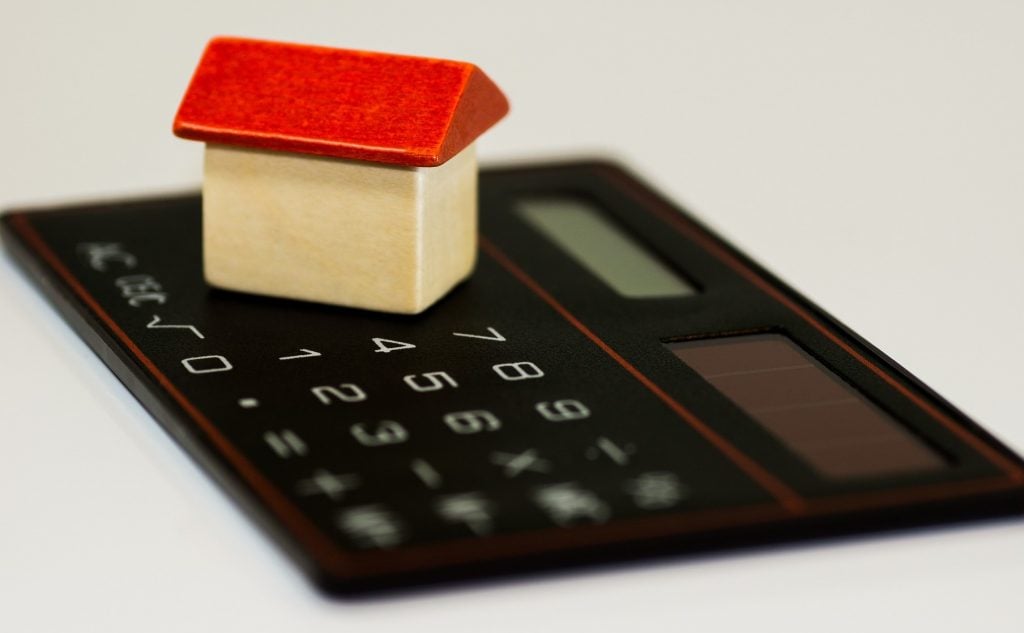
9:04 AM, 10th August 2022, About 2 years ago 2
Text Size
Since the beginning of the year, higher mortgage rates have led to the annual profits for a typical landlord being halved, research reveals.
The findings from estate agent Hamptons, show that interest rate hikes are now eating into the profit that the average landlord is now able to make.
And, following the base rate rise last week to 1.75%, the firm’s figures show that if the base rate should reach 2.5%, then profits for the average landlord in the UK would turn negative.
Aneisha Beveridge, the head of research at Hamptons, told Property118.com: “We’ve looked at how interest rate increases are eroding how much profit the average landlord makes.
“We’ve assumed the average landlord owns a house worth £222,000 with a 75% LTV interest-only mortgage which generates £13,098 each year in rent.”
She added: “Mortgage rates on buy-to-lets have risen from their low of 1.65% in October 2021 to 2.82% in June.
“This has cost the average higher rate tax-paying landlord £1,574 in profit each year, with annual profits nearly halving (-49%) from £3,203 in October to £1,629 in June.”
However, should the Bank of England’s base rate rise to 2.5% then landlords could see their profits turn negative.
Ms Beveridge explains: “Assuming any base rate rise is passed onto mortgage rates in full, you can see that it won’t take much for landlord profits to turn negative.
“With a base rate of 1.75% today, the average higher-rate taxpayer is likely to see their profit fall by 41% or £673 a year to just £956.
“If the base rate reaches 2.5% in the future, the average higher rate tax-paying landlord is likely to start making a loss on their buy-to-let.”
She added: “For lower rate taxpayers though, that cliff edge is further away, around a base rate of 4.0%.”
It is likely that most investors are on two- or five-year fixed-rate deals so like for homeowners, the impact of rising rates won’t be felt immediately by everyone.
Equally, it is also likely that investors will start to adjust before profitability is wiped out completely through a mixture of incorporation and paying down debt – either from savings or selling off parts of a portfolio.
However, what the analysis does show is that rates don’t have to go up much to impact profit.
That means that for heavily leveraged landlords, base rate rises should serve as a wake-up call.
Ms Beveridge said: “If investors aren’t able to pass on rising costs to tenants in the form of higher rents, some are likely to exit the market if they can’t weather the storm.
“It goes without saying that the lowest yielding landlords will be hardest hit by any interest rate rises.
“This is likely to impact investors in London, the lowest yielding region in the UK, in particular.
“However, many of these investors have accumulated a buffer from strong capital growth.”
For those landlords who are wondering will there be more mortgage rate rises, then it is likely since the Bank of England warned its base rates could rise further over the coming months – and this may lead to mortgage rates increasing too.
Last week’s base rate rise was aimed at controlling inflation and the bank says that over the next few months, its Consumer Price Index (CPI) could reach 13%.
However, the National Institute of Economic and Social Research, a leading think tank, says that a separate measure of inflation, the Retail Price Index (RPI), could reach 17.7% before the end of the year.
Previous Article
Tenant's poor housekeeping causing property disrepair?
Old Mrs Landlord
11:01 AM, 10th August 2022, About 2 years ago
This may be applicable in London, though I can't think there is much property there worth only £220,000. We let out a house worth around that sum which will generate £9,600 (gross) from the second half of this year, following a £50 pcm rent rise. Local salaries couldn't possibly support £13,000 per annum. The LHA rate for a two-bedroom property is well under £600 pcm.
Kumar
14:14 PM, 10th August 2022, About 2 years ago
Thank you for the analysis .
Will it have the same impact on landlords with incorporated BTLs ? If yes, then is incorporation still beneficial ? If so , How ?
Thank you